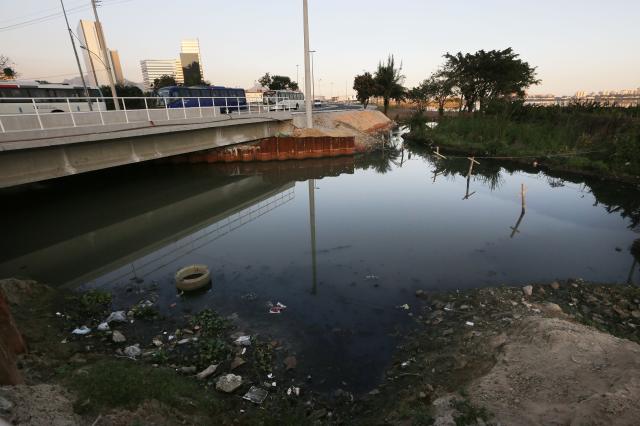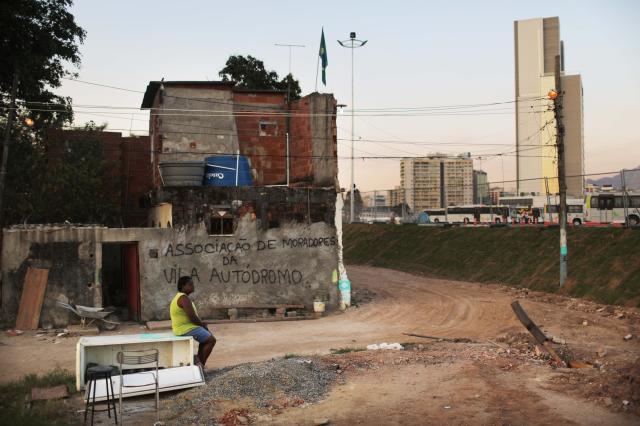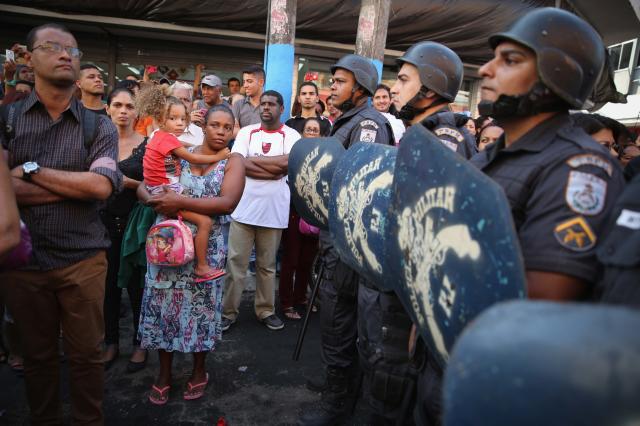
This article is more than
9 year oldRIO DE JANEIRO – On Oct. 2, 2009, the International Olympic Committee awarded the 2016 Summer Olympics to Rio. An impromptu party broke out on Copacabana Beach here, the city government declared the day a holiday for workers, and Brazil’s then-president wept at the news that his country would be able to showcase itself on the global stage.
“Today is the most emotional day in my life, the most exciting day of my life,” Luiz Inacio Lula da Silva stated. “Now, we are going to show the world we can be a great country.”
The Opening Ceremony of the Olympics is Friday, and, thus far, Brazil is not showing the world how great of a country it is or could be.
Like with most Olympic host nations, the billions of dollars spent on building and hosting these Games were sold to the public as a long-term investment designed to convince tourists it’s a place to visit and convince international business leaders in which to invest. It was especially important for Brazil, a still-developing nation and the first in South America to host the Games. Along with the 2014 World Cup, sports were seen as a national marketing vehicle.
So far, however, it’s been an unmitigated disaster overwhelmed by pre-Olympic publicity focused on pollution, disease, corruption, traffic, poverty, infrastructure inefficiencies and general discord.
“If [hosting the Olympics were] about changing perceptions of Brazil it would appear to have backfired in a serious perceptual sense,” Mark Ritson, adjunct professor at Melbourne Business School in Australia and an international branding expert, told Yahoo Sports. “They have spent billions to confirm and even worsen the negative perceptions of Brazil to a global audience.”

Lula da Silva is no longer Brazil’s president, although he remains mired in a wide-raging corruption investigation concerning bribes paid out by construction companies, among other offenses, during his time in office. His successor, Dilma Rousseff, who served as his chief of staff, has been stripped of her powers as she undergoes impeachment proceedings that stem, in part, from the same pay-for-play scandal.
There remains global skepticism that Brazil won the bid process outright, since at the time of the vote IOC officials didn’t just explain away the obvious challenges of hosting the Games here, they pretended they didn’t exist. “There was absolutely no flaw in the bid,” then-IOC president Jacques Rogge comically declared. Sure, other than all the obvious flaws. The ongoing political sagas – internal and external – have done little to assure that Brazil is a place for fair business.
Rio and Brazil, as a whole, are broke, as billions spent on construction and operational costs drain coffers. There remain concerns over the spread of the Zika virus, which can cause birth defects. The waters around the city are so polluted with sewage and various viruses that athletes who must compete in them have been told not to open their mouths while swimming. Clearly, the government did little to no work on the sewage problems, despite seven years to work on them. Crime is rampant. Traffic can be soul-crushing. Poor construction standards are obvious. The pre-Games headlines around the world have been toxic.
That day in 2009 – celebrating the chance to redefine this city and country – seems a long, long time ago.
“They’ve gotten off to a bad start,” Jonathan Schroeder, a professor at Rochester Institute of Technology with a focus on branding, told Yahoo Sports. “The general sense is they are failing to live up to international standards.”
As a microcosm there is Copacabana, the famed beach that hosted the initial bid-winning party with tens of thousands of people drinking and dancing to samba music in typical freewheeling Brazilian ways. It is the cultural and emotional center of the city.

Copacabana will host the beach volleyball competition, although concerns over erosion required a five-foot-high sand wall to be constructed. The wall is not just unsightly, robbing the Games of one of its most beautiful backdrops, thieves have exploited it to rob beachgoers of the view of police. Moreover, last month mutilated body parts washed ashore, and no one is fully confident that swimming in its waters is completely safe.
In reality, the chief motivation for hosting an Olympics is often a government, run by politicians, throwing contracts at the construction industry who in turn donate back (above or below the table). The money is in the concrete, steel and labor deals, which run into the billions.
The grander, and still true, reason for hosting, though, is to promote a city or nation to the world – to become a so-called, gold-plated “Olympic City.”
“The classic example is the Seoul Olympics in 1988,” Schroeder said of the Summer Games held in what was then a somewhat mysterious Asian nation. “It really put Korea on the map and showed the world a modern, industrial nation. It is also credited with giving a book to a lot of Korean brands, such as Samsung.”
Brazil, with a population of more than 200 million, was hoping for the same. Everything is not completely lost. It still boasts a rich and dynamic culture. Pollution concerns aside, it is a place of wondrous natural beauty. A Rio beach party is still a Rio beach party.
If the Games can be pulled off, perhaps that narrative can emerge. The visuals for international broadcasts remain the same – the soaring Sugarloaf Mountain, the smiles and laughs of partying locals, the Christ the Redeemer statue looking down over everything.
Raising “awareness of Brazil as a tourist destination might yet prove worthwhile,” Ritson said.
It will have to be a flawless Games, however, with, Schroeder notes, a particularly dynamic Opening Ceremony, which was so powerful for the Beijing Games in 2008 that it overwhelmed pre-Olympic stories over human-rights failures and income inequality. Even then, though, Schroeder said issues with raw sewage in the waters of actual Olympic competition venues – rowing, sailing and the triathlon – could prove impossible to overcome. “That’s something new,” he noted.

In real time, the health and safety concerns have left the ticket market soft since fewer tourists than predicted are expected to come. The Wall Street Journal reported that hotel occupancy in Brazil was just 51.6 percent in the second quarter of 2016, down nearly 8 percent from just a year before. Zika and pollution are particularly troubling for younger potential tourists.
Compounding the issue is that in specific first-world markets there has been considerably bad publicity about these Games. That includes, most notably, Australia, whose Olympic Committee deemed its athlete housing uninhabitable last week. It went from bad to worse when their quarters suffered a fire only to have returning athletes discover some laptops were stolen.
This isn’t the first, and won’t be the last, Olympics that has gone off the rails. Russia spent $51 billion on the 2014 Winter Games with the stated goal of promoting the Sochi area as a vacation destination – with both world-class skiing and a warm, tropical (it boasts palm trees) waterfront along the Black Sea.
Shoddy construction and attention on stray dog eradication and human-rights crackdowns damaged that storyline. The Sochi Games never really recovered.
So this is the challenge for Rio and Brazil, which gambled big they could pull this off and now face the reality they are seen as less safe, less clean, less honest and less modern than if they had just never bid.
“And the opportunity cost of spending their money on something other than the Olympiad cannot be ignored either,” Ritson said. Something such as billions on building out pro-business infrastructure and widespread tourism advertising that could pay dividends down the line.
The Olympic torch gets lit on Friday. The gleeful party is a distant memory. Everyone here is holding their breath – in and out of the water.